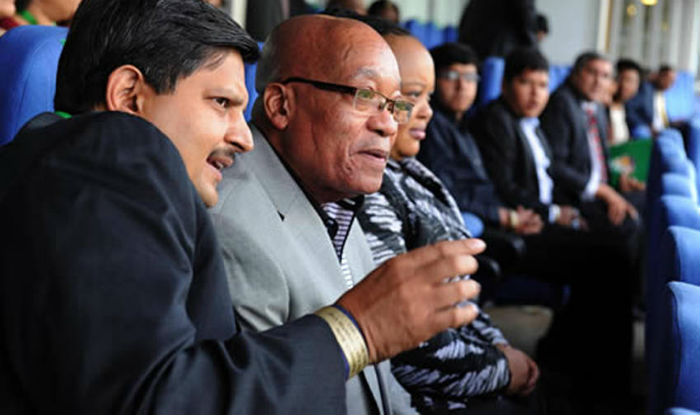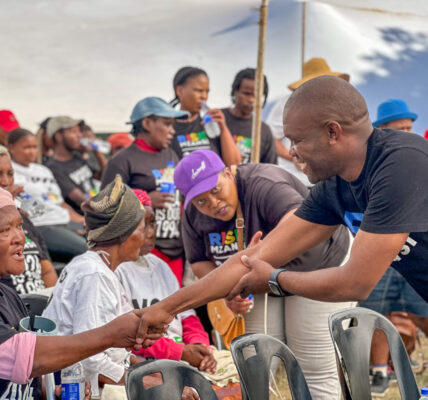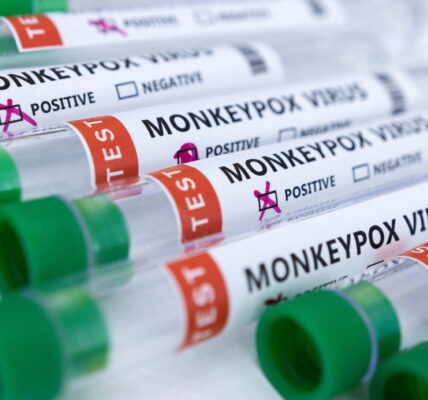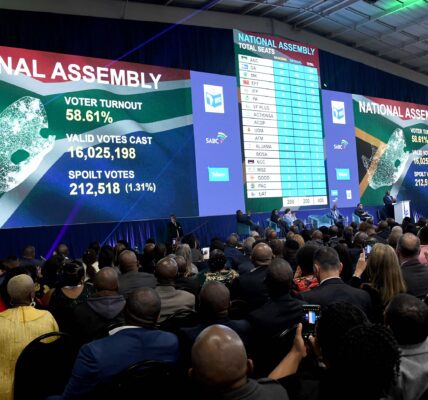Zuma’s MK Party Used Gupta-Era Tactics in South Africa Election Disinformation Campaign
The UmKhonto We Sizwe party of Jacob Zuma levereged strategies first learned during the Gupta era for covert influence operations dating back to 2016 to propagate the “big lie” conspiracy theory, which falsely alleged vote rigging in the May elections in South Africa. The Gupta brothers, two Indian nationals accused of grand-scale corruption in South Africa aided by Zuma, have since fled the country. Kyle Findlay, the co-founder of Murmur Data, a data-driven consultancy, told NSN in an interview that the MKP leveraged its echo chamber to drive the “big lie,” while paid influencers were employed mostly by other parties to attack political opponents. He also said that Zuma’s daughter was the key influencer promoting the idea that the election had been stolen in an attempt to undermine the election results.
MK Party’s covert methodology dates back to 2016
Kyle, who examines socio-political trends, monitored the South African elections on May 29 this year. “The same big influential accounts have driven narratives,” he said. “The MK Party has a preponderance of large influential anonymous accounts, more so than most other communities, but they’ve been there for years. That organisation and faction have a long-term history of using covert influence operations, going back at least to 2016 with the Gupta bots.”
The positioning of the Gupta bots, he said, was defined in meetings between designers Duduzama Zuma (Zuma’s son) and Bell Pottinger. But according to Findlay, Bell Pottinger had no hand, “as far as we know,” in the Gupta bots and suggested turning them off when their activities came to light.
The MK Party faction’s use of covert methodologies dates back to 2016. “Some influencers are known, some are not, and some are very public political figures. There were no real surprises. Possibly the amount of retweets and likes they received might have been artificially amplified, but it’s likely an echo chamber built intentionally over many years with real people.”
The echo chamber, Kyle said, had been built up intentionally over many years, similar to the MAGA movement in the United States. “Even if a lot of the MAGA communities are built up through inauthentic means, the audience is now authentic. It is what happens all over the world,” he said.
Political, geopolitical, and local actors, Findlay noted, use inauthentic means to build echo chambers of real people and weaponize those. “We as members of these echo chambers, we don’t realize that we are part of an echo chamber. We just know that we’re surrounded by people who think like us, who’ve pointed us towards the ‘other’ that is the enemy, and have furnished us with arguments that we can use to debate the ‘other.’ We don’t realize how homogenized those are and the way in which we’ve been purposefully separated and pitted against each other on all sides, left, right, up, down, radical or not. It is a dynamic that is happening in every country in the world. And that’s a dynamic that’s happening in South Africa.”
The groundwork for the ‘big lie’ conspiracy that the MK Party tried to push, he said, was laid months before the elections by the MK Party and its supporters. They tried to seed the idea that the elections in South Africa had been stolen. Closer to the elections, the MK Party promoted the idea of the elections being stolen, “by taking videos of stored ballots and suggesting tampering, undermining trust in the results before they were announced.”
Key MK Party influencer is Zuma’s daughter, aligned to RET Faction
The “big lie” narrative, he said, was promoted by the same players repeatedly. The key influencer for this message was Zuma’s daughter, Duduzile Zuma Sambudla, who is now a Member of Parliament for the MK Party. “She is a key influencer for anything MK-related, along with a few others. These are the expected actors, consistent in their efforts to influence. The influencers pushing the narratives of the MK Party are historically aligned to the Radical Economic Transformation (RET) faction in the country.”
The MK Party promoted the idea of the elections being stolen by taking videos of stored ballots and suggesting tampering, undermining trust in the results before they were announced. The EFF ground forces picked up this narrative, but it didn’t gain long-term traction. Kyle suggests that pre-bunking efforts helped inoculate people against it, and the MK Party has since withdrawn their court case about the elections being stolen.
But despite retreating on their claims that the election was stolen and MK Party members taking their seats in parliament, the Independent Electoral Commission in South Africa pushed for the case to continue, citing “serious allegations” about the election’s credibility. The case will be heard virtually on July 29.
The role of hired guns of disinformation
In South Africa’s elections, political parties, Findlay said, bought access to influence networks to attack opponents. It’s hard to trace the money flow, but Findlay says you can infer from who they promote and attack where the money comes from. “If a hashtag springs up overnight attacking one political party and promotes the regalia of another political party, it’s pretty clear who’s benefiting. But that’s what we saw in the run-up to the elections, saw parties engaging the services of paid influencers to attack other parties.”
Some of the influencers, he said, are apolitical mercenaries selling to the highest bidder, whether brands or political parties. During non-election seasons, they might promote TV channels, local fashion brands, or DJs. “These hired guns have networks they’ve built and curated over time,” he said.
After the elections, paid influencers were used to attack certain coalition options and promote others to undermine the Government of National Unity (GNU) that was formed when the ANC failed to get a majority in the elections.
What other countries can learn from the South African experience
Findlay says that starting to monitor social media activity shortly before an election is probably too late. “One key lesson is the importance of long-term monitoring and preparation. Online influence strategies are medium and long-term efforts, and actors show their hand well before the elections. It’s crucial to be aware of and measure these influences long before election day. Last-minute interventions are unlikely to be effective.”
























































































































































































































































































